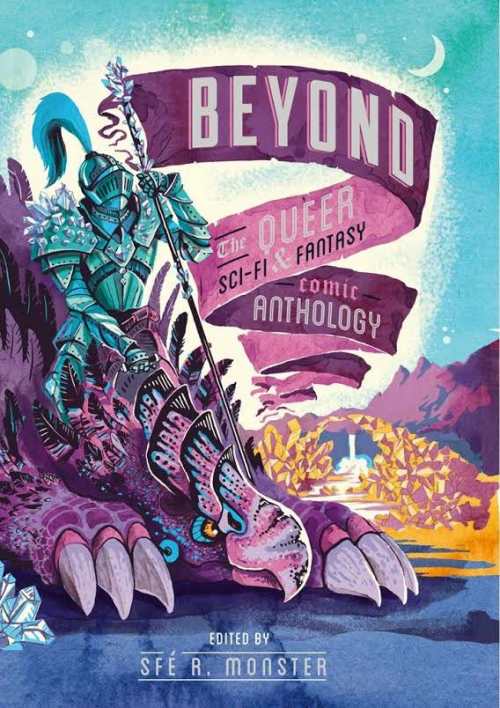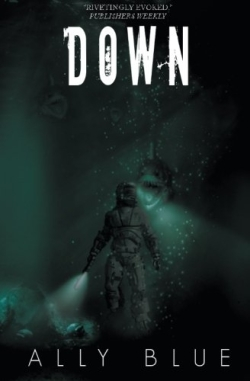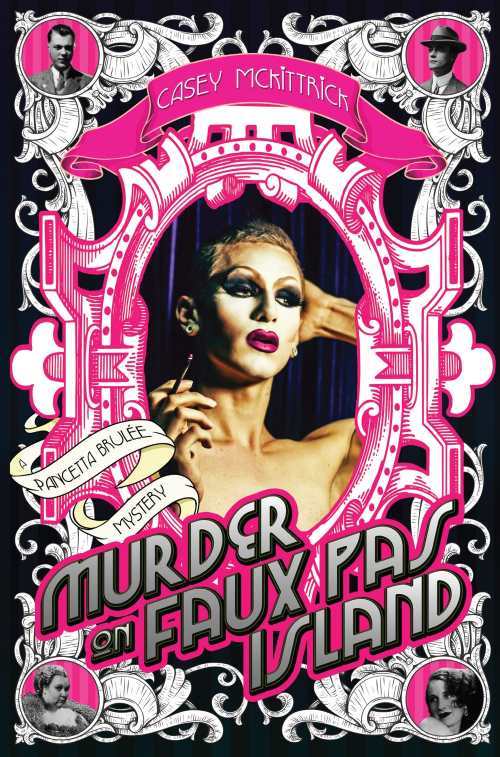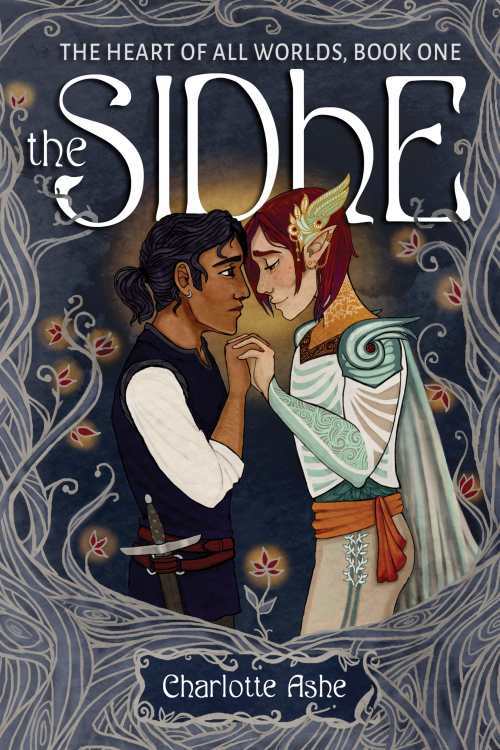LGBTQ in Sci-Fi: Space is the Gayest Place
Editor’s Note: This commentary by author Claire Rudy Foster is part of our special focus on LGBTQ issues in the month of June.
In the pulp novels I grew up reading, the astronaut with the square jaw always ends up on an uncharted planet, far beyond his familiar stars. He stumbles from his spaceship in his high tech vinyl suit. When the space women find him, they stand around him in a semicircle, arms crossed over their armored chests. They were not making a salad when he came, in his American-made ship. They were not reading a magazine, or wondering which side to part their hair on. They were happy before he came, and his male presence is a threat and a disruption.




The premise of these stories, unspoken or not, is that everyone is gay in space. They’re full of planets populated by gay, lesbian, and trans characters. Science fiction and speculative fiction imagine universes where anything goes. The rules of Earth’s narrowly defined cultural roles do not apply. The (male, heterosexual, cisgender) astronauts bring their preconceived notions of gender to the story. Why don’t these space women love us? they wonder. Yet, as readers, we see how primitive their expectations are.
There are some wonderful examples of LGBTQ science fiction writing, and indie publishing is, as usual, on the cutting edge. The Lambda Literary Awards recognize excellence in science fiction writing that features prominent LGBTQ characters and focuses on the queer experience. Last year, three Riptide Publishing titles were honored in the science fiction/fantasy/horror category, as well as a self-published novel by Jude McLaughlin.
Riptide, according to co-owner Rachel Haimowitz, is “on a mission to to make sure that everyone, queer or straight, understands what a beautiful, vital, important thing the LGBTQ community is.” That includes the final frontier of space, in the depths of the sea, and at the ends of human imagination. Sacrati, by Kate Sherwood; Minotaur, by J.A. Rock; and Down, by Ally Blue were all honored by Lambda.
Since indie presses tend to feature non traditional, underrepresented voices, LGBTQ stories often find a home with offbeat, smaller publishers. As diversity, representation, and gender become increasingly important, larger publishers may aim to catch up with the indies. We’ve reviewed some wonderful sci-fi and speculative fiction titles that feature gay, lesbian, and trans heroes:
Down, which won a Lambda Award last year, is the story of a group of scientists investigating an alien life form at the bottom of the ocean. The underwater lab features a fairly equal distribution of men and women, a variety of name origins and ethnicities, and homosexual lovers as lead characters.
Murder on Faux Pas Island is a mystery that takes place in an alternate, more accepting 1935. An amateur sleuth and professional caterer blends his assigned identity, a man named Chet, seamlessly with that of his drag identity, a woman named Pancetta Brulee.
The Sidhe: The Heart of All Worlds is high fantasy set in faerie world that focuses on the adventures of a gay couple. Human nobility has enslaved the sidhe faerie race, so when a royal steward falls in love with a male faerie slave, it unleashes a chain of events that rocks the foundations of human and sidhe worlds alike.
The best science fiction writing for LGBTQ characters, authors, and audiences is still on the fringe. In fact, the further you go from the center, the better the book. One gorgeous standout is Beyond: The Queer Sci-Fi & Fantasy Comic Anthology. Self-published by editor Sfe R. Monster and Taneka Stotts, Beyond is an incredible, powerful collection of stories by LGBTQ artists. The eighteen comics include “unquestionably queer characters hailing from across the spectrum of gender and sexuality.” Beyond offers visual representation of gay, trans, and queer characters who are central to the story, empowered, and not depicted as victims, pariahs, or punch lines.
Science fiction in particular offers opportunities for queer writers and stories. Monster, in the foreword to Beyond, said, “The world seemed full of fun escapism, packed with high-fantasy and science fiction adventure stories where not even the sky was the limit, but for all their fire breathing dragons and aliens from other worlds, none of them included me, or anyone like me, as the hero.” A successful Kickstarter campaign confirmed that, yes, readers do want queer science fiction stories.
Writers, publishers, artists, makers, and creators continue to claim space for LGBTQ characters and experiences. In space, the limitations of binary life don’t apply. Like gravity, they fade away as we move into the frontier of stars, freeing characters to be anything at all—and, most importantly, live as their true selves.

Claire Rudy Foster, a freelance writer in Portland, Oregon, is the author of the short story collection I’ve Never Done This Before. You can follow her on Twitter @claire_rudy.
Claire Foster
